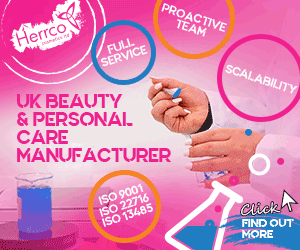Unilever, the UK-based cosmetics and consumer goods conglomerate, has voiced its concerns about the need for animal tests in beauty.
The Dove owner has accused regulators of taking a “backwards slide”, as contradicting laws leave a back door open for animal testing.
To meet the needs of the EU REACH regulation, chemicals companies may be forced to test cosmetic ingredients on animals in rare instances where a chemical’s impact on human health or the environment is called into question.
In 2020, German chemicals company Symrise appealed a decision by the European Chemicals Agency (ECHA) that forced it to carry out tests on animals to satisfy REACH requirements, but was overruled by the Board of Appeal.
Under the EU Cosmetics Regulation (1223/2009), animal testing of cosmetic ingredients in the EU has been banned since March 2009, with an EU marketing ban on the sale of cosmetic ingredients tested on animals outside of the EU coming into effect in March 2013.
“While the EU Cosmetics Regulation forbids animal testing, the EU regulation which governs chemicals, known as REACH [...], still requires animal testing under many circumstances,” the group wrote in a statement.
“This means there is a mismatch between the two regulations and so, while animal testing for cosmetics is banned in the EU, animal testing continues to take place under REACH.
“And the problem is getting worse.
“The European Chemicals Agency is calling for new animal tests for ingredients with a long history of safe use, even for those solely used in cosmetics.
“This move is destroying the EU’s 2013 ban on animal testing for cosmetics.”
However, Unilever has said that its scientific testing is able to predict a chemical’s impact on the environment and ensure that it stays below harmful levels.
This means it would be safe from animal tests to meet the requirements of chemical agency regulations.
And now, the company is calling for change in the way that chemical safety is assessed for regulatory purposes.
“Until policymakers accept the leading-edge application of new approach methodologies (tests that don’t use animals), we’ll continue to advocate strongly for the regulatory changes needed to uphold the EU’s legal requirement that non-animal approaches are used if available,” Unilever added.
“And on behalf of consumers, Unilever and our 31 PETA-approved brands will continue to speak out.”




